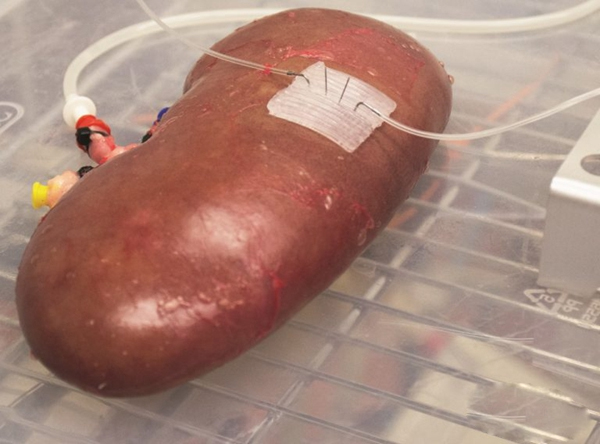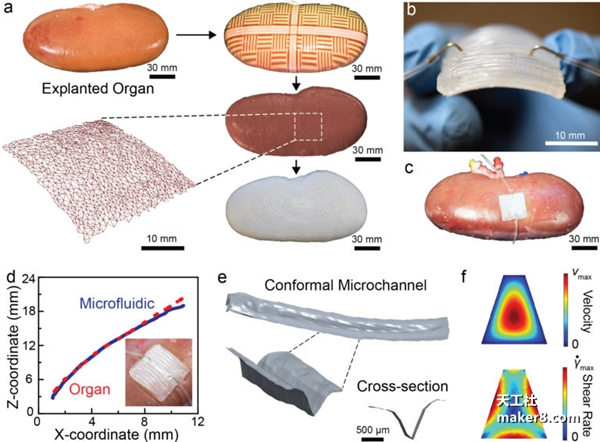US scientists use 3D printed microfluidic devices to improve donation of organs
Although 3D printing technology is not yet able to make the entire transplanted organ, it can increase the number of donated organs available. Recently, researchers at Virginia Tech have developed a new technology called "microfluidic biopsy." This technique involves the use of 3D printed microfluidic devices to check the health and functionality of the entire donor organ. This research has been published on Lab on a Chip. One of the reasons for the shortage of transplanted organs is that many donor organs have never been used because it is difficult to determine if they are healthy enough. In order to avoid implanting a function-deficient organ, they are often discarded. The new microfluidic device will change this situation. To make the 3D printed microfluidic device used, the researchers first performed a 3D scan of the kidney with the HP 3D structured light scanner Pro S2, and then created a 3D model of the organ based on the scanned data, followed by a Printrbot Simple Metal 3D printer. It prints out. Using a custom micro-extrusion-based printing process, the researchers used a 3D printed organ model as a base on which the microfluidic device was printed in 3D, and the printed material was silicone. Co2 Fire System,Gas Cartridge External,Co2 Gas Cartridge,External Carbon Dioxide Gas Cartridge JIANGSU NEW FIRE FIGHTING TECHNOLOGY CO.,LTD , https://www.newayfire.com


